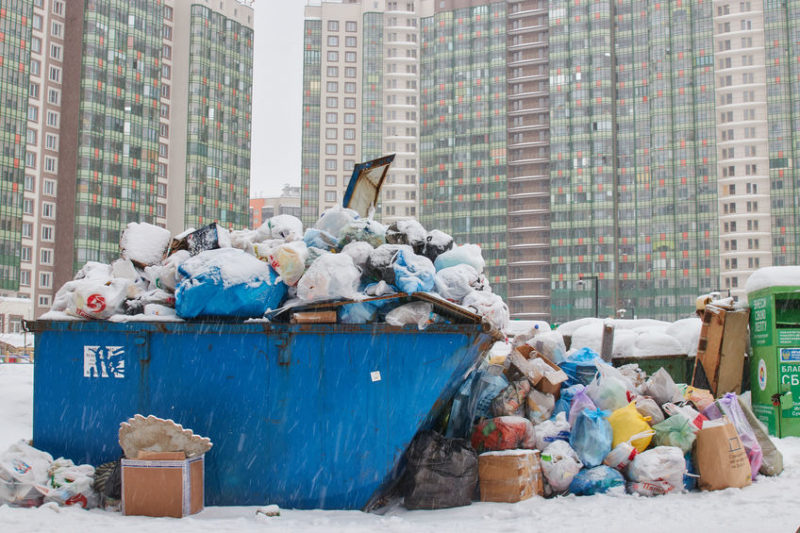Littering Vs. Illegal Dumping
The difference between littering and illegal dumping is determined by the type and quantity of waste. Littering refers to improper disposal of a small amount of trash such as throwing a beverage bottle or piece of paper on the roadside.

Most cities and public cities have several public litter cans placed in strategic locations to prevent littering and keep the area clean. These litter cans are sorted to capture organics and recyclables. However, illegal dumping may occur when people dump large amounts of garbage or hazardous wastes in public places or private property such as a rented dumpster behind a store or commercial building. It can attract additional dumping charges and also create health and safety problems.
What is the Legality of the Issue?
Dumping trash in dumpsters or containers placed on private property is illegal unless the owner permits them to do so. This includes but not limited to dumpsters placed next to stores, commercial businesses, construction sites, roll-offs or carts at homes, and other kinds of garbage receptacles on private property. The laws governing this principle may vary by municipality and different states. However, many cities consider such illegal dumping as a misdemeanor, which can be punished by possible jail time or heavy fines.
Not only is it illegal to add trash to a store’s dumpster, but also leaves less space for them to fill it up with waste, debris, or other kinds of junk. Since the storeowner cannot throw away the added trash on the road or a public area, they are forced to handle everything on their own. If the first dumpster is already full, the storeowner may have to rent a second dumpster to complete the job.
The extra weight added through illegal dumping could also push the load beyond the recommended weighty allowance. Since many rental companies have strict rules on dumpster usage, they may leave the dumpster until it is leveled or charge you extra fees for violating their policies. Furthermore, trespassers may dispose of hazardous wastes that contribute to expensive penalties placed by the dumpster rental company.
Who Can Be Prosecuted?
Charges can be filed against individuals and businesses for violating the laws about illegal dumping. There are instances when company executives and managers may be prosecuted whether they have actual knowledge of a violation or not. Illegal dumping is an environmental crime that has fewer defenses compared to other criminal offenses. Some states adopt a strict liability approach where the defendant can be found guilty regardless of his or her state of mind at the time. This means that the prosecutor only needs to prove that the defendant committed illegal dumping which is a prohibited activity.
Defenses against Illegal Dumping
Lack of knowledge about the prohibited activity is not always a defense in most cases. However, if you can demonstrate to the prosecutor that you did not intend to violate the dumping laws then your charges or penalties can be reduced. A government official can also give misleading information about permissible disposal methods.
For instance, if a county or city employee tells you that you do not need a permit to dump certain materials and you follow the advice in good faith, your reliance on the government representative may be considered as a defense. It is also important for small government bodies like counties or cities to follow complicated state procedures correctly when adopting regulations. If the adopting governmental body makes a mistake then the regulations may be considered invalid.
Someone convicted of prohibited activity such as illegal dumping in a store’s dumpster can be subjected to fines, probation, incarceration, community service, or remediation. It is important to be aware of laws governing waste disposal and management in your area to avoid falling on the wrong side of the law. If you have a large project or you want to dispose of large pieces of junk, consider renting the right size dumpster to fulfill your waste disposal needs.

